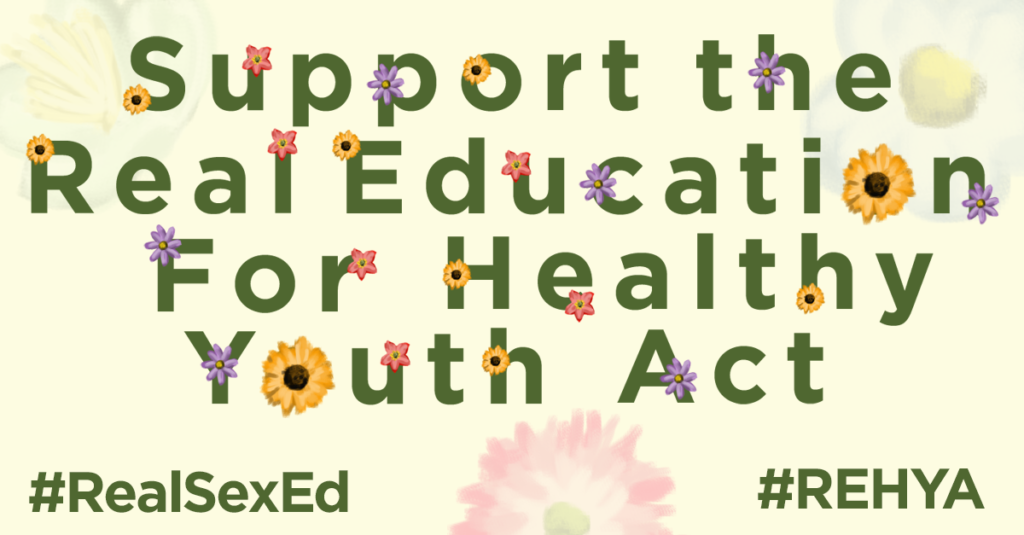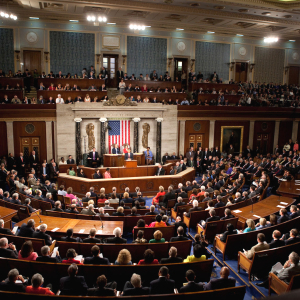
Earlier this week, we mentioned that there was a bill pending in the Senate that could lead to additional funding for teacher training of sexuality educators, and for grants that could lead to more comprehensive education programs. But let’s dig deeper. What could the implications be if the Real Education for Healthy Youth Act (REHYA) were passed?
The Specifics of the Real Education for Healthy Youth Act
This bill was introduced in the House in March of 2015 by the late Senator Frank Lautenberg (D-NJ) and Representative Barbara Lee (D-CA). It proposes that the Department of Health and Human Services be required to award competitive grants for comprehensive sexuality education for both adolescents and college-age students. Funding to provide training to faculty and staff so they could teach comprehensive sexuality education to elementary and secondary school students would also be required.
If this bill were passed, grants could not be used for health education programs that:
- deliberately withhold health-promoting or lifesaving information about sexuality-related topics, including HIV;
- are medically inaccurate or have been scientifically shown to be ineffective;
- promote gender stereotypes;
- are insensitive and unresponsive to the needs of survivors of sexual abuse or assault, sexually active youth, or lesbian, gay, bisexual, transgender, queer, and questioning youth; or
- are inconsistent with the ethical imperatives of medicine and public health.
This bill amends the Public Health Service Act, removing the limitations it created around using AIDS prevention program funding for education or information that promotes sexual activity. It also amends the Elementary and Secondary Education Act of 1965, allowing funding to be used for contraceptive distribution in schools.
According to Advocates for Youth—one of the many groups supporting this new bill—the institutions and programs that would benefit from this funding include departments of education; non-profit organizations; state, local, and tribal organizations; departments of health; and institutions of higher education.
They report that priority in funding would be given to communities with high rates of health disparities in unintended pregnancy, STIs, and dating violence and sexual assault, as well as institutions of higher education that serve a large number of students of color and Pell grant recipients.
Who Else Is Supporting the Real Education for Healthy Youth Act?
In addition to Advocates for Youth, who provide statistics that illustrate why this bill is so necessary, groups such as the Sexuality Information and Education Council of the United States (SIECUS) and the Human Rights Campaign (HRC) implore their readers to stand up in support of REHYA.
SIECUS provides contact information for those who want to cosponsor the bill, and lists others who already endorse REHYA, including the AIDS Institute, AIDS United, the American Civil Liberties Union, Choice USA, Futures Without Violence, the Guttmacher Institute, the International Women’s Health Coalition, NARAL Pro-Choice America, the National Coalition of STD Directors, the National Council of Jewish Women,the National Family Planning & Reproductive Health Association, the National Latina Institute for Reproductive Health, and Planned Parenthood Federation of America.
HRC has also linked to a report titled “A Call to Action: LGBTQ Youth Need Inclusive Sex Education,” which highlights the limitations of abstinence-only-until-marriage and LGBTQ-exclusive sex education, and which lists concrete steps to improve the state of comprehensive, LGBTQ-inclusive sex education.
If you would like to support REHYA, there are numerous resources for doing so, including this petition created by Advocated for Youth and this URGE campaign that enables you to send an email to your congressional officials with one click.




